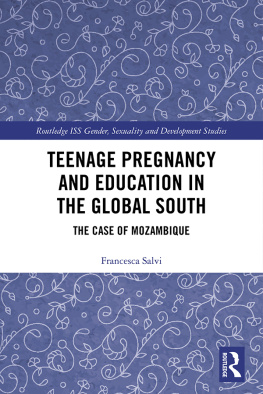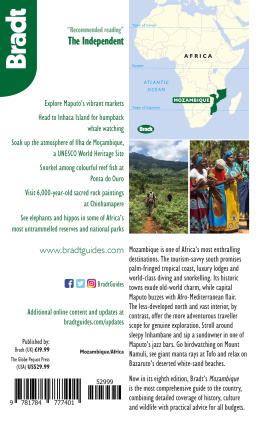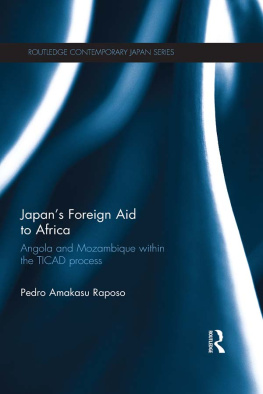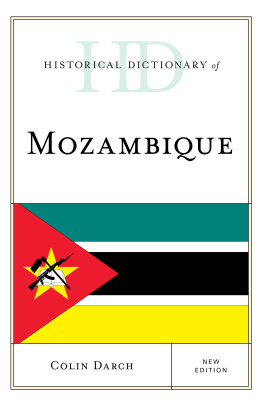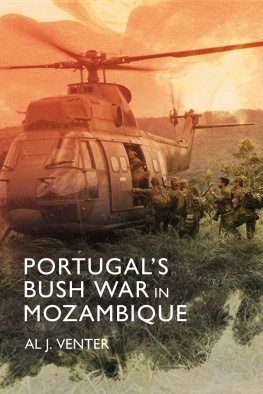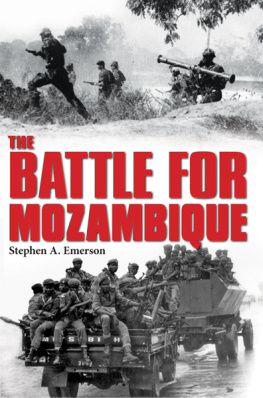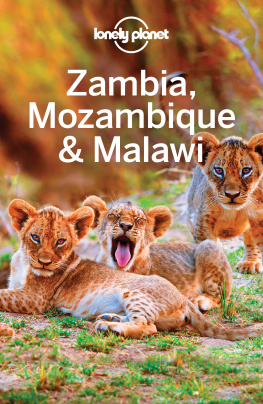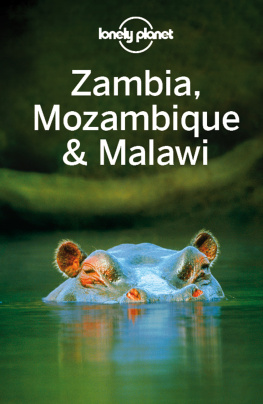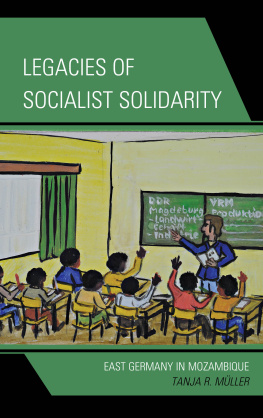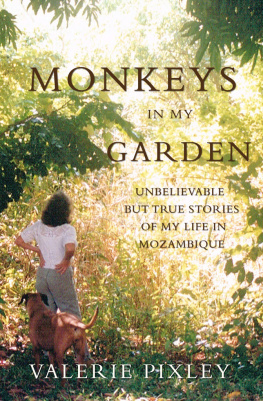Table of Contents
Guide
This book owes a great deal to the generosity and goodwill of the Mozambicans whose lives are recorded in its pages. They gave freely of their time, their insight, and their convictions, a debt that no amount of writing could repay.
I hope my endnotes, too, serve as acknowledgments unto themselves, of the scholars, journalists, and others whose work has shaped my understanding of Mozambiques place in the world. I am grateful to the Fulbright Program for making my travel possible, and to Jermaine Jones, at the Institute of International Education, for graciously allowing me to veer off course without reproach.
In Mozambique, I relied on the companionship, guidance, and hospitality of countless friends and strangers alike. In particular, I wish to thank Paulo, Julio Khonamumba, Beto Vasco Vares, and the other Woodcarvers of the June 16th Collective; Casimiro, Muanhua, and Fernanda, in Quartero 16; Ahmed and Ali, in Bombeiros; and Father Marcelo Anggo in Liupo, each of whom helped me begin to understand a different piece of Nampula. Many thanks to Osrio, whose warm welcome, creativity, and book recommendations enriched my time in Tete immeasurably; to Silvia Cheia, for her help in navigating MDM; and to Ldia Lpes, whose good cheer brightened many a day in Maputo.
Emiliano and Lcia da Silva let me into their family and shared their lust for life (and love of kizomba) over the course of many feasts on the terrace behind their apartment in Baixa. Conversations in their living room jolted my curiosity and offered a taste of Maputo I will not soon forget.
My fellow students and researchers at Universidade Eduardo Mondlane all made the Centro de Estudos Africanos a truly welcoming and inspiring environment for a newcomer; most of all, Elisio Jossias, who humored me through constant tweaks to the focus of my research and helped me make valuable connections to scholars throughout the university. Roberta Pegoraro, David Morton, Joo Feij, and Nadia Esteves each sharpened my Portuguese and curiosity for Mozambique with valuable feedback and encouragement early on. Kory Russell, Emily van Houweling, and Wouter Rhebergen became fast friends and opened their doors on my arrival in Nampula. Thanks also to John Haas, for picking up the first story I filed there.
Gideon Yago convinced me that writing a book was easier than it seemed. As grateful as I am that I believed him, let the record show that he was wrong. My agent, Valerie Borchardt, lent her talent and support to an early vision for this project when I had only begun to piece it together. Marc Favreaus quick reading and deft touch made revising the manuscript far easier than writing it; Emily Albarillo and the whole team at The New Press pitched in with enthusiasm and expertise to turn it into something that can be pulled down off the shelf.
Portions of this manuscript benefited from early readings by Laura Silver, Lis Harris, and Bill Finnegan, and from tidbits of wisdom on publishing, besides, from Mark Krotov, Edward Orloff, Carole Sargent, and my aunt Honor Moore.
No writer could ask for better friends and sounding boards than Will Bent, Gabriel Louis, and Oliver MundayI hear his book covers are pretty good, too.
Lastly, I have a deep well of affection for my family, who kept me focused and upbeat throughout. My parents, Tom and Adelia, were some of my earliest readers, as was my brother Carrick, who gave me a place to lay my head when I started writing. Most of all, I am grateful for my wife, Lena Jackson, who read, and lived with, more versions of this manuscript than anyone should have to, and without whose support I might never have finished it.
About the Author
Rowan Moore Gerety is a journalist based in Miami. His writing has appeared in The Atlantic, Foreign Policy, the Miami Herald, Slate, and Virginia Quarterly Review, and he has produced radio stories for NPR and PRI. He studied anthropology at Columbia University and was a Fulbright fellow in Mozambique. This is his first book.
A vida aqui um jogo de xadrez.... O cavalo move assim, o bispo move assim.... S que a meio do jogo as regras mudam. Comeu-te um peo porque o cavalo passou a mover-se diferente.
Life here is like a chess game.... The knight moves like this, the bishop like that.... Except that in the middle of the game the rules change. A peon ate you because the knight started to move differently.
MOZAMBICAN DANCER IN MAPUTO
By the time Davane Monteiro started selling cassette tapes, in 1997, the CD was already king in much of the world. Cassette sales in the United States peaked at close to 500 million tapes a year in 1988, fell by more than 80 percent in the 1990s, and have only continued to decline in the years since.
Not so in Mocuba: as Monteiro remembers it, when he bought his first lot of tapes, the only recorded music to be had there, with a few exceptions, was on a pair of scratchy radio stations, one of which played only gospel. Record players had always been rare. Tape decks were only just making their way into the living rooms of the well-heeled as the economy came back to life after the war. A few people, Monteiro remembers, had Walkmans, but they had to travel a hundred miles to the port of Quelimane to buy new music. So Monteiro went to Quelimane himself and asked the cassette vendorsboys his own agehow to get started. They pointed him to their tio, or uncle, the supplier, and Monteiro returned to Mocuba with a lot of twenty tapes, which he sold from a bench at the market. In three days, he had none left. He went and got another twenty. Then fifty, then one hundred. The business went well. When his supplier went out of town for six months, another man approached him, wanting to do the same business. The man went to Malawi, came back with five hundred tapes, and had Monteiro resell them. The next time, Monteiro went with him.
They went to Blantyre for cassette tapes, Tanzania to buy shoes, and Zambia to buy capulanas, the printed wrap skirts traditionally worn by women in many African countries. Mozambiques coastline is close to two thousand miles long, yet plenty of imports come by way of its landlocked neighbors. In Mocuba, you can find sugar, cement, and potatoes, as well as fertilizer, used clothing, shoes, and schoolbags that have come from Malawi, often after passing through Mozambican ports. Along the border, there are communities that sell their maize to traders in Malawi, only to see it trucked back into Mozambique as a Malawian export. Often, the remote portions of Mozambique seem cut off from the rest of the country, their economies tributaries of cities somewhere beyond the national boundaries. Sometimes, this is because of shared language and customs, which are more meaningful, locally, than any concept of national identity. Just as often, it is simply a matter of convenience borne of spotty infrastructure and underdeveloped marketspeople go to Malawi to buy things they cant find, or cant find as cheaply, in Mozambique.
Monteiro and his tio slept in bus stations and ate in the markets where they bought their merchandise, returning to Mocuba as soon as possible so Monteiro could get back to school. For Monteiro, it was an education in business: what goods packed well, what sold fast, how to negotiate shipping fees with the louts who loaded the buses back toward Mozambique. He picked up snatches of Swahili in Tanzania and learned how to count in English. He describes it now as a great adventure.
Soon, Monteiro struck out on his own, reselling tapes in twenties and thirties to other kids in Mocuba. Since he was making regular trips to Blantyrethe closest city where you could find something like a full-fledged record storehe began to field special requests. He hunted down songs for Mocubas restaurant owners and for its nightclubs, the largest of which, the Desportivo, is a colonial athletic club reinvented as a discotheque after the swimming pool was drained in 1975.
Next page

